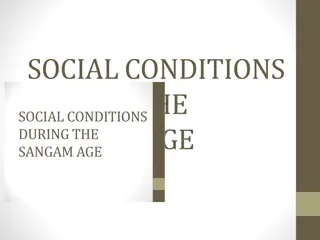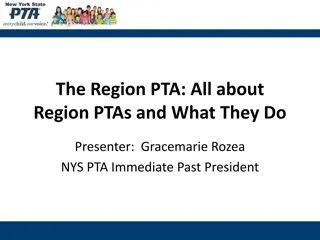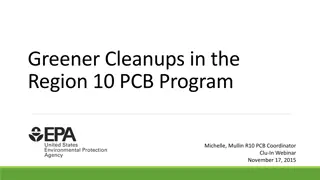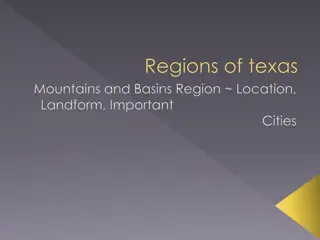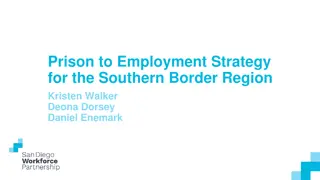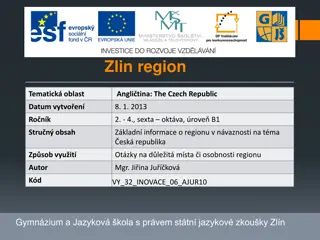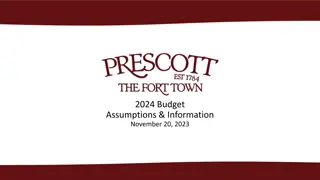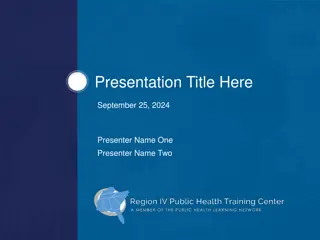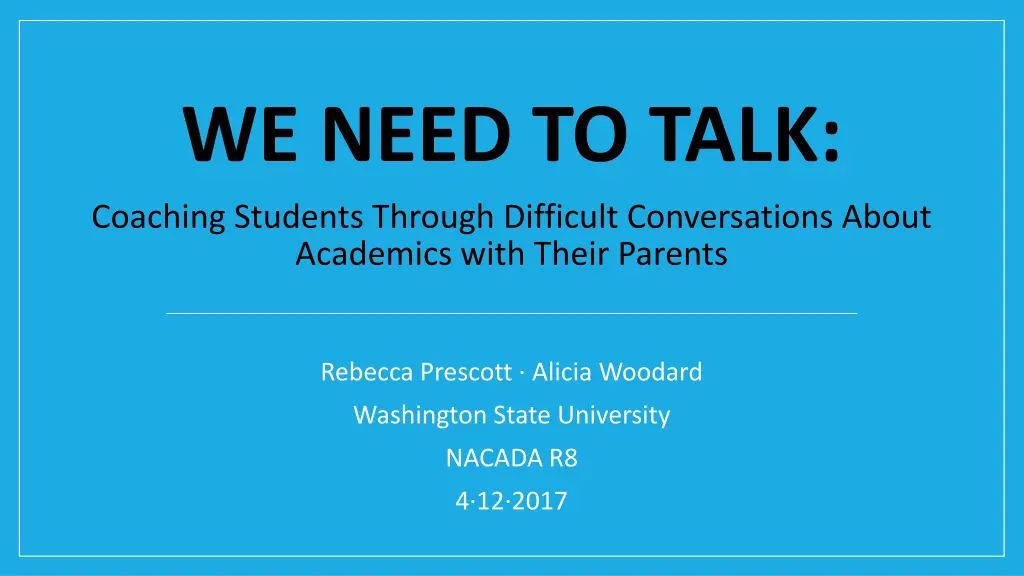
Coaching Students on Academic Conversations with Parents
"Learn effective strategies for guiding students through challenging academic discussions with their parents, covering topics like major changes, academic standing, graduation delays, and more. Gain insights on professional judgment, proactive approaches, and dealing with various parental reactions."
Download Presentation

Please find below an Image/Link to download the presentation.
The content on the website is provided AS IS for your information and personal use only. It may not be sold, licensed, or shared on other websites without obtaining consent from the author. If you encounter any issues during the download, it is possible that the publisher has removed the file from their server.
You are allowed to download the files provided on this website for personal or commercial use, subject to the condition that they are used lawfully. All files are the property of their respective owners.
The content on the website is provided AS IS for your information and personal use only. It may not be sold, licensed, or shared on other websites without obtaining consent from the author.
E N D
Presentation Transcript
WE NEED TO TALK: Coaching Students Through Difficult Conversations About Academics with Their Parents Rebecca Prescott Alicia Woodard Washington State University NACADA R8 4 12 2017
OVERVIEW History and Context Conversations and Student Concerns Advisor Professional Judgement Reactive Strategy Case Study Discussion Proactive Strategies Questions
Historical Events Millennials & Gen Z Student-Parent Relationship Technology Emerging Adulthood
What are the conversations? Change of major Academic probation/dismissal Alternate path based on academic performance Extended graduation timeline
What are the concerns? I don't know how my parents will react My parents will be sad or disappointed My parents will be angry or won't take me seriously My parents will ask too many questions My parents already have enough to worry about My parents won t pay for school anymore
Using Professional Judgement Boundary between advising and counseling Student Not all families are the same Incomplete picture Advisor Parent(s) NACADA Core Competencies
Clarify C3 Approach Customize Check in
Motivational Interviewing Open-ended questions Affirmation Reflections (reflective listening) Summaries
Clarify C3 Approach What are the concerns Comfort and preparedness level Student s goals for the conversation
Customize C3 Approach Plan of action to achieve goal Research Resource referrals Role reversal
Check in C3 Approach Did you meet your goal? Reflection What? So what? Now what?
Monica comes into your office in a panic the week before finals because her current grades are much lower than they have been in previous semesters. This will delay her progress toward certification into her business major. As it is very late in the semester and your options are limited, you discuss different strategies to improve her GPA and stay on track for certification in the future. Eventually, she expresses she is nervous to talk to her parents because they have given her a specific GPA standard to maintain if they are to continue paying for her schooling. She is normally comfortable talking with her parents about academics because she always has good news to report, but now she is not sure how her parents will react. How do you coach Monica through this difficult conversation?
Chandler stops by for drop-in hours right after mid-term grades have been posted. Based on your institution s academic standard policy, he is very concerned he will be dismissed from the university and is not sure what to do next. With eight weeks left in the term, you refer him to campus resources to help improve his grades. He follows up with you toward the end of the semester and his grades are still not high enough to meet academic standards. Afraid of how his parents will respond to the news, Chandler tells you he is going to hide this from them for as long as possible. How do you support Chandler?
Rachel is in her junior year and has been pursuing a major in Apparel Merchandising, but when she meets with you to plan classes, she shares she wants to change her major to Psychology. You discuss the factors leading up to her decision to switch majors and she shares she has been volunteering at the local homeless shelter during college and has realized her passion for serving others and would like to continue doing so as a social worker. She has researched the impact on her timeline to graduation as well as the additional education requirements for this career, but is concerned to share this change with her family and friends. How do you help Rachel get comfortable with having this conversation?
Campus partners How can we be proactive? Preparing Students Freshman seminar Workshops Online resources
Summer Orientation How can we be proactive? Preparing Parent(s) Admission Website Discussion Pact Newsletter
QUESTIONS? Rebecca Prescott Academic Advisor Washington State University rprescott@wsu.edu 509-335-2294 Alicia Woodard Academic Advisor Washington State University awoodard@wsu.edu 509-335-0396
References Academic Advising Core Competencies Model. NACADA: The Global Community for Academic Advising, https://www.nacada.ksu.edu/About-Us/NACADA-Leadership/Administrative-Division/Professional-Development- Committee/PDC-Advisor-Competencies.aspx. Accessed 5 April 2017. Arnett, Jeffrey Jensen. Emerging Adulthood: A Theory of Development From the Late Teens Through the Twenties. American Psychologist, vol. 55, no. 5, 2000, pp. 469-480. Bruschke, Kira et al. (2010). Bringing the Message Home: Teaching Effective Communication to Students and Parents. NACADA Clearinghouse of Academic Advising Resources http://www.nacada.ksu.edu/tabid/3318/articleType/ArticleView/articleId/165/article.aspx Accessed 5 April 2017. Conversations. University of Oregon Parent and Family Programs, https://families.uoregon.edu/conversations. Accessed 30 March 2017. Hoppe, Michael H.. Active Listening, edited by Michael H. Hoppe, Center for Creative Leadership, 2006. ProQuest Ebook Central, http://ntserver1.wsulibs.wsu.edu:2362/lib/wsu/detail.action?docID=3007624. Miller, William R. and Stephen Rollnick. Motivation Interviewing: Helping People Change. Guilford Press, 2012. Time to Talk: Talking to Your Parents. Mental Health America, http://www.mentalhealthamerica.net/conditions/time-talk-talking-your-parents. Accessed 5 April 2017. Williams, Alex. Move Over Millennials, Here Comes Generation Z. The New York Times, 18 Sept. 2015. https://www.nytimes.com/2015/09/20/fashion/move-over-millennials-here-comes-generation-z.html?_r=1

